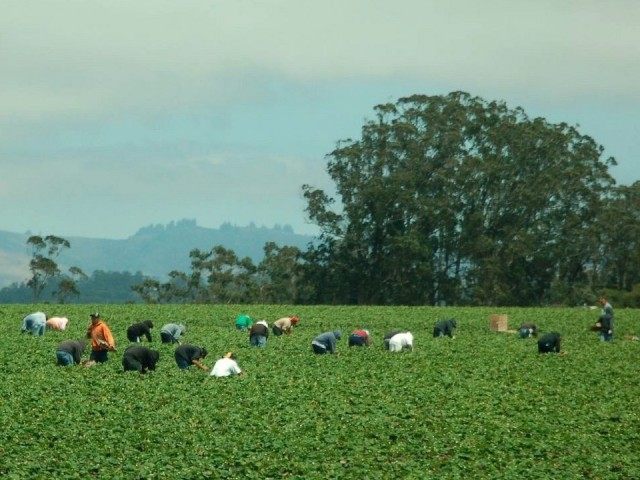In a huge victory for farmers and their workers, California’s 5th District Court of Appeal ruled last week that the state’s “Mandatory Mediation and Conciliation” process, which allows a mediator to impose a binding contract on farm companies and agricultural unions when the negotiation process breaks down, is unconstitutional.
The court said, “Allowing the union mandatory mediation and conciliation (MMC) violated ‘equal protection principles’ that constituted an improper delegation of legislative authority.”
Jerry Brown, in his first stint as Governor, established the Agricultural Labor Relations Board (ALRB) in 1975. The board was supposed to serve as an independent labor arbiter modeled after the National Labor Relations Board. But the board morphed into a union ally by attempting to force an agricultural company to implement a contract with the United Farm Workers.
Gerawan Farming, a top tree fruit and grape grower that operates on 12,000 acres and employs more than 5,000 employees in Fresno and Madera counties, had been locked in a standoff with the UFW for more than two years over who would represent nearly 3,000 of Gerawan’s field workers.
Gerawan, in court papers, said that the ALRB “certified” the UFW back in 1992 as exclusive bargaining representative for Gerawan employees, but no contract was negotiated between Gerawan and the UFW for more than 20 years. Gerawan said it did not hear from the union until October 2012, when the union demanded that contract negotiations be reopened. Gerawan decided to oppose the union effort to take control.
Employees held a November 2013 election on whether to decertify the UFW as their bargaining agent. When it appeared that the union was about to lose, ballots were impounded by the ALRB and have never been counted in 18 months because ALRB claims it is trying to determine if there is any merit to union allegations of Gerawan’s supposed voter impropriety in pressuring employees to reject the UFW.
“We direct the regional director to forward to the Board and serve on all parties to the election all challenged ballot declarations and all other evidence in his possession relevant to the eligibility of challenged voters,” the ALRB said in a Nov. 7 decision.
The local press was full of stories by workers like Silvia Lopez, who has worked at Gerawan since 1998, who supported decertifying the union, and who said that the claims vote tampering were baseless, joining noisy rallies against the ALRB and UFW.
Ten days after the election, the ALRB denied a company’s motion to begin mediation with the union until after the votes were counted. Under ALRB rules, if the company establishes an interim contract with the union before the election investigation ia completed, Gerawan’s 5,000 workers would remain in the union despite the vote.
The ALRB set up what was called a “brief timeline” to complete its investigation. But with Gerawan and the union unable to come to an agreement after several inconclusive bargaining sessions, the ALRB appointed a mediator, who held hearings and drafted a contract that included wage increases, new grievance procedures, and other changes. The ALRB approved the contract in November 2013.
Gerawan sued, and the appeals coart agreed that the ALRB should have given the company the opportunity to prove that the union had abandoned the workers. In a 58-page opinion, Judge Stephen Kane wrote for the three-judge panel that a union’s arguable abandonment of employees, then its return to invoke mediation, may create what the court called “a crisis of representation.”
“The court’s ruling vindicates our argument that no state agency should be able to unilaterally impose a contract on workers without a vote or force it on employers without their consent,” said Dan Gerawan, the company’s co-owner.
The UFW said that farm workers across the state are disappointed, but that it believes the ruling will be overturned on appeal to the California Supreme Court. The UFW added: “Fresno judges accepted Gerawan’s bogus allegations that the UFW abandoned the company’s workers when no proof was ever presented. They also accepted Gerawan’s dishonest claim that it paid the highest wages in the industry when the neutral state mediator found that was not the case.”
Photo: file, farming corn

COMMENTS
Please let us know if you're having issues with commenting.